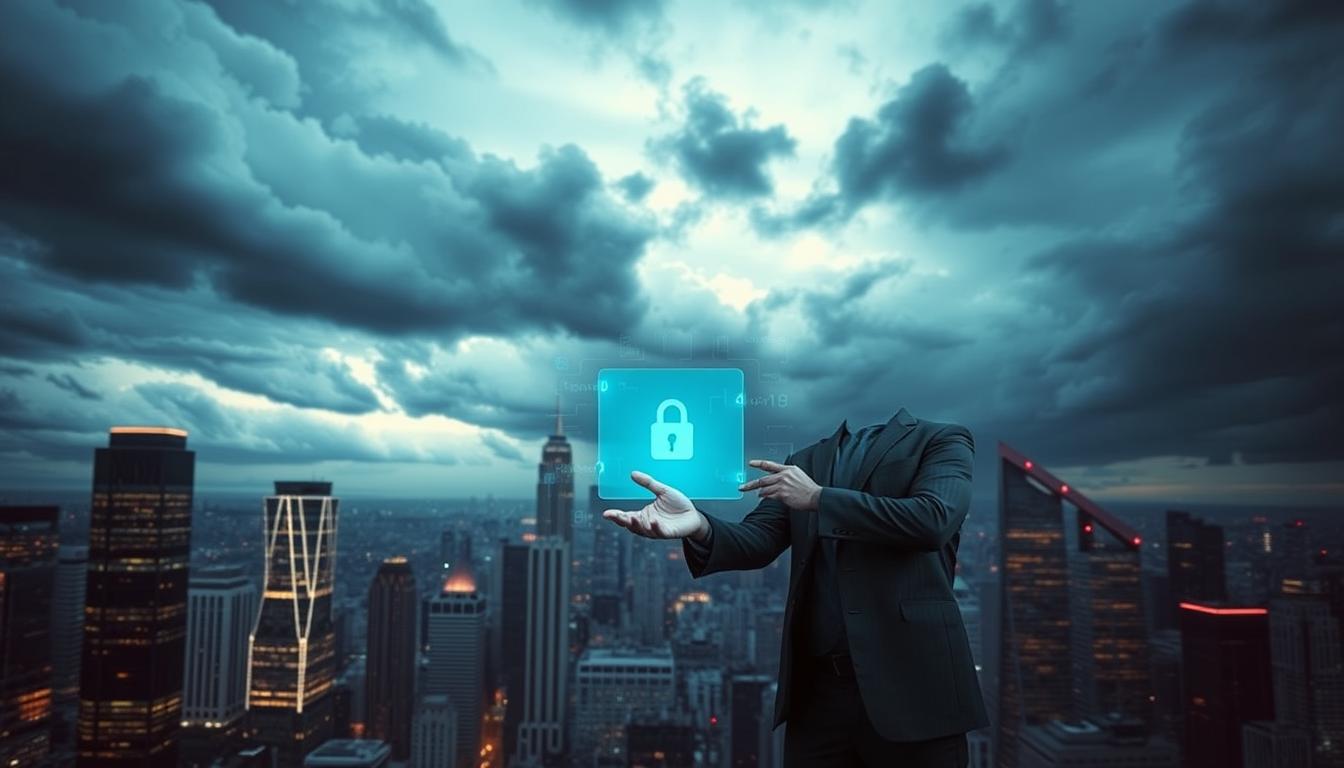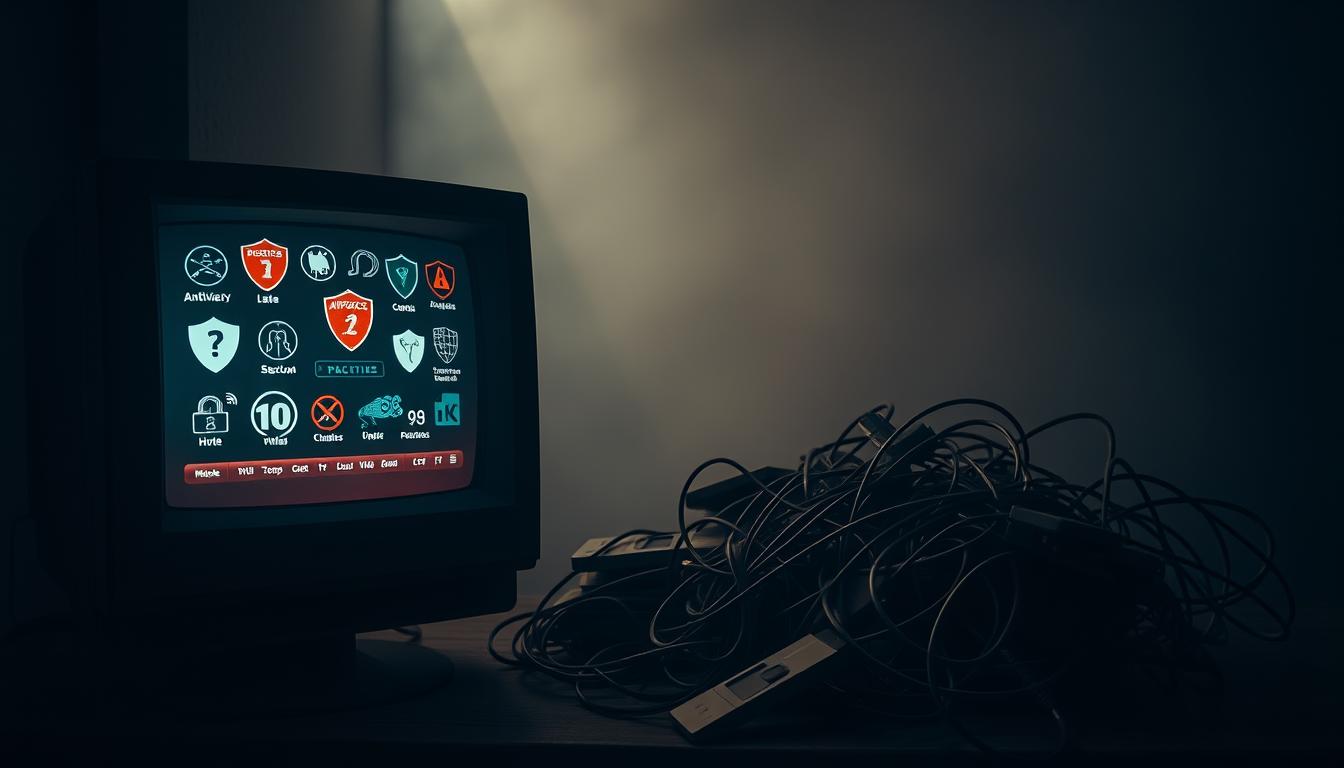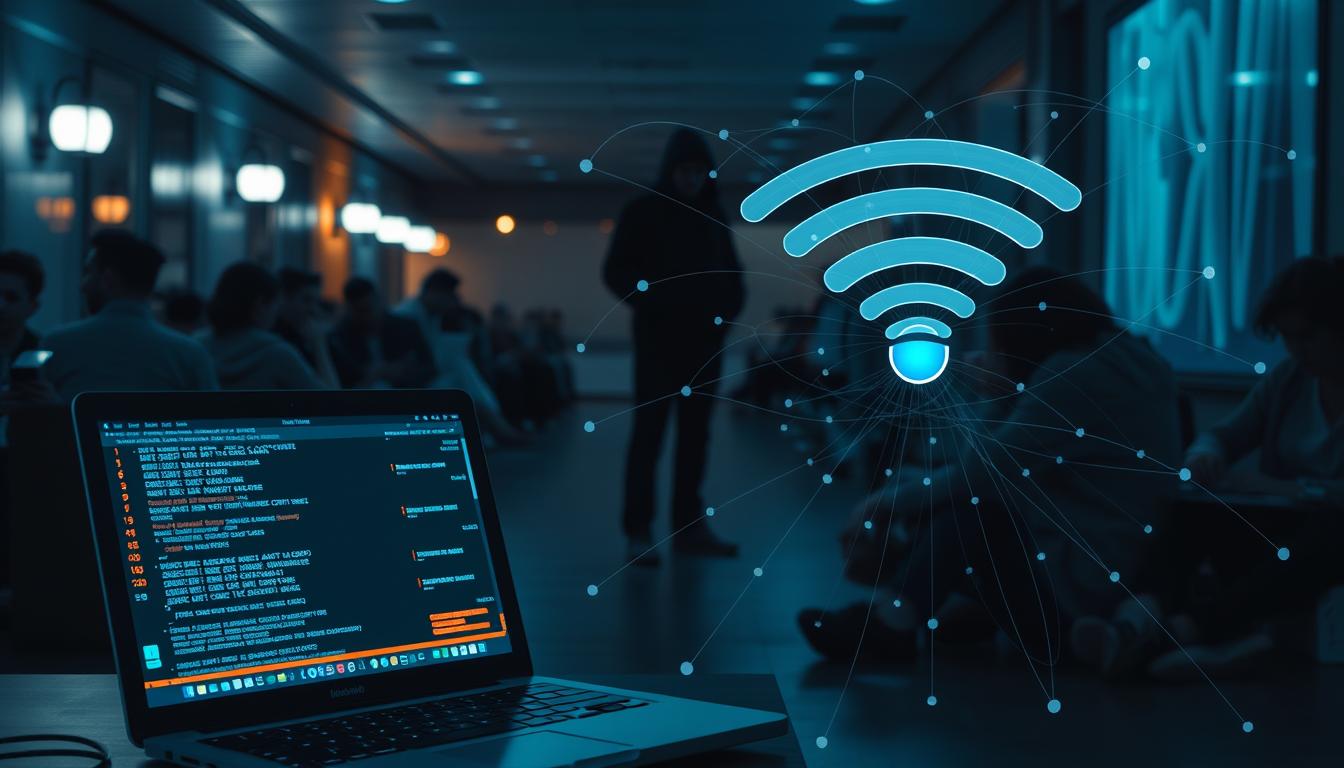Do you think you’re too small to be a target? Or that antivirus alone keeps you safe? Believing these common myths can leave you open to danger. It’s key to know that wrong info about online safety can make you more vulnerable to cyber threats.
By debunking the biggest cybersecurity myths, you can learn digital security facts that really help. This article will look at five common myths and the truth behind them. It aims to help you make safer choices online and boost your safety.

Key Takeaways
- Many individuals underestimate their risk of cyber attacks.
- Depending exclusively on antivirus computer programs isn’t adequate for protection.
- Public Wi-Fi networks often pose unseen dangers.
- Strong passwords alone do not guarantee security.
- Awareness of cybersecurity myths can lead to better digital safety practices.
Understanding the Importance of Cybersecurity
In today’s world, understanding cybersecurity is key to keeping our advanced lives safe. It’s about protecting computers, networks, and data from hackers. As cyber threats grow, knowing how to protect ourselves is more important than ever.
What is Cybersecurity?
Cybersecurity is about using strategies and technologies to keep systems safe from digital attacks. With more people online, the risk of data theft and identity fraud has risen. It’s vital for both businesses and individuals to focus on cybersecurity to stay safe.
Why Cybersecurity Matters for Everyone
Not having great cybersecurity can lead to genuine problems. For example, Symantec found that 1 in 4 people have had their identity stolen. This shows why we need to learn about digital safety education and follow online protection tips.
By using strong passwords, being careful with personal info, and keeping devices updated, we can all help make the internet safer. Learning about understanding cybersecurity helps us protect ourselves and our data in the digital world.

Common Cybersecurity Myths and Misconceptions
Many people think they’re safe without antivirus software, a common myth. This belief can leave you open to cyber threats. With a rise in malware attacks, it’s key to know the truth about cybersecurity.
Keeping your devices safe with antivirus is crucial. It’s not close to security; it’s approximately peace of mind.
Myth 1: “I Don’t Need Antivirus Software”
Many believe antivirus software is only for some users. But, this is a dangerous idea, given the rise in malware threats. All devices, no matter the operating system, can get malware.
Every day, new vulnerabilities appear. These are exploited by cybercriminals. So, having good antivirus is vital.
The Truth About Antivirus Protection
Antivirus software is your first defense. Without it, your devices are at risk. Search for real-time protection and standard overhauls in your antivirus.
Use reviews and expert advice to choose your antivirus. Brands like Norton, McAfee, and Bitdefender are known for their reliability.
Tips for Choosing the Right Antivirus
- Identify what features you need, such as real-time scanning, firewall protection, or parental controls.
- Consider cross-platform availability if you use multiple devices.
- Look for a solution with proven effectiveness against the latest threats.
- Read user reviews to gauge the experience of other customers.

Public Wi-Fi Dangers You Shouldn’t Ignore
Using public Wi-Fi can make you feel safe with just a password. But, many think a password means their data is safe. This belief creates a false sense of security, leaving us open to big risks.
Myth 2: “Public Wi-Fi is Secure if it has a Password”
This myth ignores the fact that password-protected networks can still be hacked. Hackers use these networks to steal data. They can easily get past security, putting our sensitive info at risk.
The Risks of Using Public Networks
Public networks come with many dangers:
- Data Theft: Without security, your personal and financial info can be stolen.
- Unauthorized Access: Hackers can get into your device and watch what you do.
- Malware Distribution: Unsecured networks can spread malware.
How to Protect Yourself on Public Wi-Fi
To keep your data safe on public Wi-Fi, take these steps:
- Utilize a Virtual Private Arrange (VPN) to scramble your connection.
- Don’t check sensitive info, like bank accounts, while online.
- Forget the network after you’re done to stop it from reconnecting.

Password Security: More Than Just Strong Passwords
Strong passwords are important, but they’re not enough to keep you safe online. In fact, 81% of data breaches happen because of weak passwords. This shows we need a better way to protect our online accounts.
Myth 3: “Strong Passwords are Enough”
Numerous think solid passwords are sufficient to keep their accounts secure. But, even strong passwords can be hacked through phishing or data breaches. So, just having a strong password isn’t enough to keep your info safe.
Understanding Password Managers
Secret word directors like LastPass and 1Password are an incredible offer of assistance. They make and keep track of solid passwords for you. This way, you can have a different password for every account, making it harder for hackers to get in.
The Importance of Two-Factor Authentication
Two-factor authentication adds a big layer of protection. It asks for your password and another piece of info, like a code sent to your phone. This makes it much harder for programmers to urge into your accounts.

Conclusion
Busting cybersecurity myths is key to keeping your online world secure. Misunderstandings about antivirus software, public Wi-Fi, and passwords can open big doors for hackers. Knowing that strong passwords aren’t enough and simple cyber habits are crucial can really help.
Being aware is your best defense. By knowing the five myths we talked about, you can protect your personal info better. It’s important to check your habits, use good tools like antivirus, and practice two-factor authentication.
It’s up to you to stay ahead of cyber threats. By focusing on these steps, you can make your digital life safer. Always be informed, careful, and keep your cybersecurity up to date to avoid risks.



GIPHY App Key not set. Please check settings